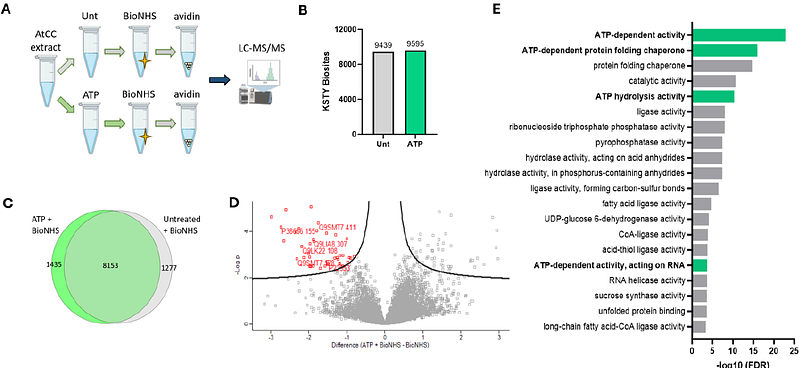Expanding and applying reactivity-based protein profiling (RBPP) in Arabidopsis

Expanding and applying reactivity-based protein profiling (RBPP) in Arabidopsis
Mooney, B. C.; Lyu, J.; Kaschani, F.; Kaiser, M.; van der Hoorn, R. A. L.
AbstractReactivity-based protein profiling (RBPP) is a powerful chemical proteomics technique that uses chemical probes to gain new insights into the surface exposure of amino acid residues within native proteomes. While RBPP has primarily been employed to identify proteins that could be potential targets for novel small molecule drugs, its applications in biological research are limited, especially in plant science. In this study, we introduce RBPP in plants by identifying over 15,000 labelling sites in native protein extracts from Arabidopsis cell cultures using an amine-reactive N-hydroxysuccinimide (NHS) ester probe linked to biotin. We demonstrate the utility of this approach by examining differential labelling in the Arabidopsis proteome in response to ATP. Pre-treatment with ATP results in decreased biotin-NHS labelling at residues near known ATP-binding sites and also revealed several novel ATP-responsive proteins. Lastly, we established RBPP with phosphonic acid-based NHS probes and immobilised metal affinity chromatography (IMAC) enrichment, revealing over 5,700 additional labelling sites. Collectively, these findings highlight that RBPP is a powerful and adaptable tool that can address key questions in plant biology.